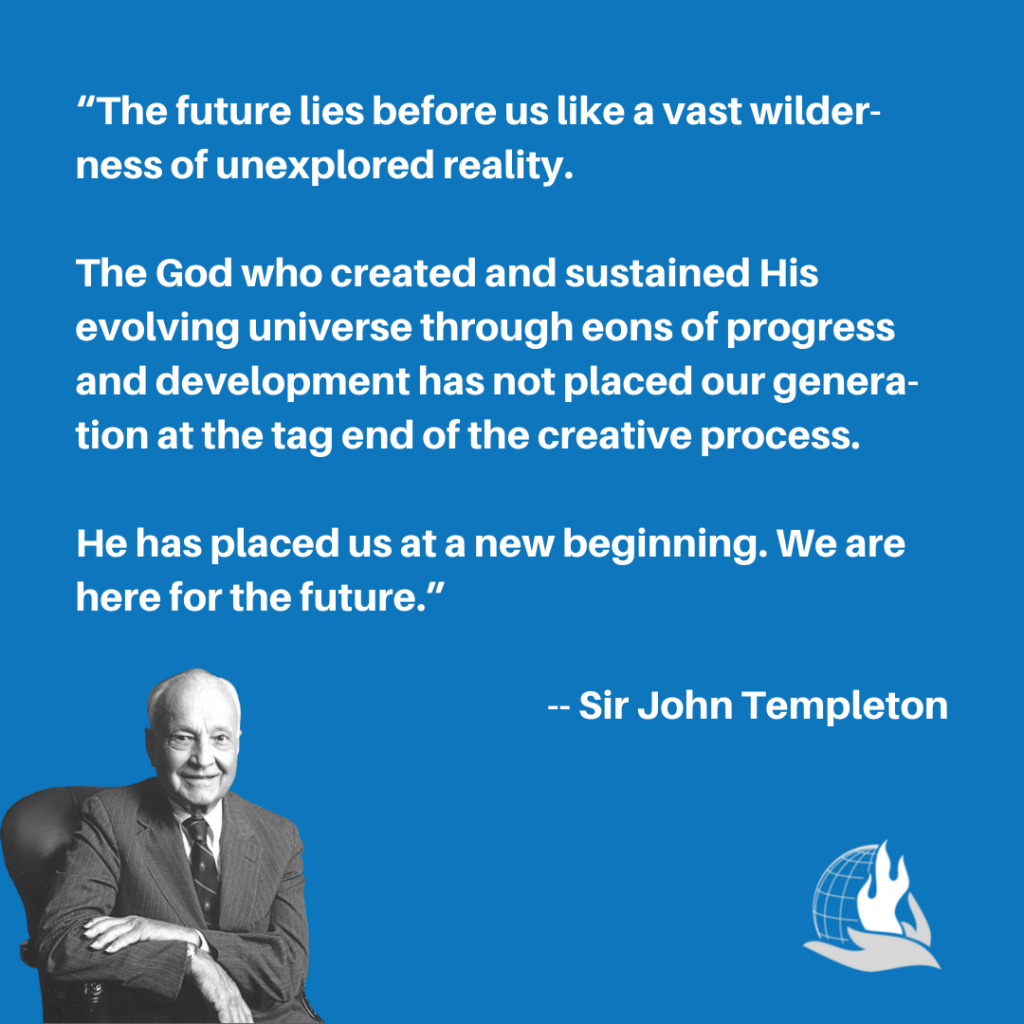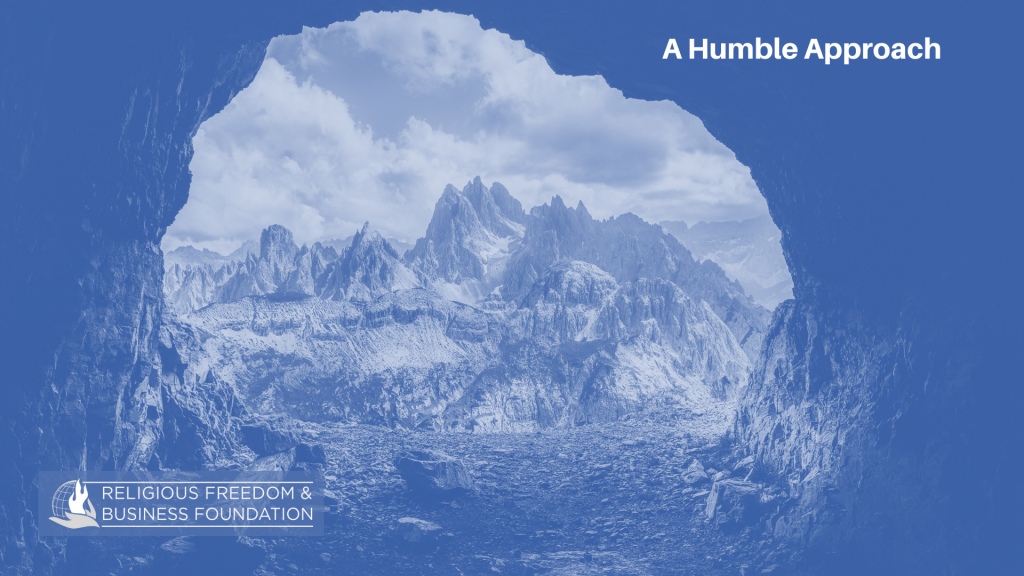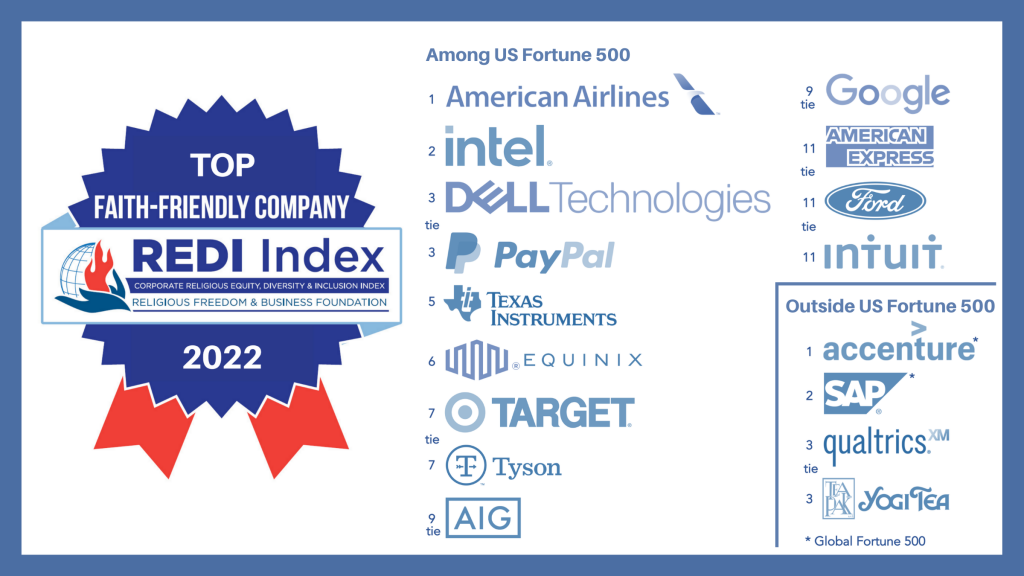The guiding philosophy of the Religious Freedom & Business Foundation is captured most beautifully in The Humble Approach: Scientists Discover God by Sir John Templeton. A humble approach not only allows us to open new doors for discovery, but it also builds bridges of “religious freedom for all” into new sectors, such as business.
Here are a few quotes from Sir John’s book. Although originally published in 1981, they are as hopeful and relevant today as they were then.
“The future lies before us like a vast wilderness of unexplored reality. The God who created and sustained His evolving universe through eons of progress and development has not placed our generation at the tag end of the creative process. He has placed us at a new beginning. We are here for the future.”
 “In fact, humility is the key to progress. Without it we will be too self-satisfied with past glories to launch boldly into the challenges ahead. Without humility we will not be wide-eyed and open-minded enough to discover new areas for research. If we are not as humble as children, we may be unable to admit mistakes, seek advice, and try again. The humble approach is for all of us who are concerned about the future of our civilization and the role we are to play in it. It is an approach for all of us who are not satisfied to let things drift and who want to channel our creative restlessness toward helping to build the kingdom of God.”
“In fact, humility is the key to progress. Without it we will be too self-satisfied with past glories to launch boldly into the challenges ahead. Without humility we will not be wide-eyed and open-minded enough to discover new areas for research. If we are not as humble as children, we may be unable to admit mistakes, seek advice, and try again. The humble approach is for all of us who are concerned about the future of our civilization and the role we are to play in it. It is an approach for all of us who are not satisfied to let things drift and who want to channel our creative restlessness toward helping to build the kingdom of God.”
“It is also in humility that we learn from each other, for it makes us open to each other and ready to see things from the other’s point of view and share ours with him freely. It is by humility that we avoid the sins of pride and intolerance and avoid all religious strife.”
“This book explores the possibility that humility in man’s understanding of God may be more fruitful than the formal systems of thought which we have inherited, whether they be theistic, pantheistic, or panentheistic. Gradually we may learn to love every one of God’s children and be grateful for an increasingly rich diversity of thought emanating from research and worship in every land. One of the purposes of this book is to examine and foster the idea that through a humble approach in knowledge in which we are open-minded and willing to experiment, theology may produce positive results even more amazing than the discoveries of scientists which have electrified the world in this last century.”
“Things are not what they seem. Sometimes phenomena which appear real to us are actually hoaxes perpetrated by our lack of knowledge and limited senses. For example, until five hundred years ago it was assumed that lying in bed was a relatively motionless experience. This seemed an obvious fact to anyone who had ever done it. But Copernicus’ discovery that the earth and the planets move around the sun implied that because the earth rotates, a person sleeping in bed moves eastward at one thousand miles an hour. The sleeper also flies one thousand and eighty miles a minute in another direction due to the earth’s revolution around the sun. Just a few years ago the rotation of the Milky Way was measured, indicating that our solar system is moving at one hundred and sixty-two miles per second in yet a third direction. Also, in 1977, Ames Research Center in California computed that our galaxy is speeding away from the original point of the big bang at four hundred miles per second toward a spot in the sky near the Constellation Hydra. So a sleeper may seem to be motionless, but in reality he or she has traveled a distance greater than that to the farthest point on earth, in more than four directions at once, and in less time than it took to read this page.”
“This is the Humble Approach: to assume a realistic attitude before the Creator and admit that we are not the center of the universe. The sun does not revolve around us. Our five human senses are able to comprehend only a small portion of the mysteries, forces, and spiritual realities surrounding us. Egotism has been a major cause of many mistaken notions in the past. Egotism caused men to think that the stars and the sun revolved around them. Egotism caused men to think that mankind was as old as the universe. Egotism is still our worst enemy. In fact, things are still not what they seem. Only by becoming humble can we learn more. Forces still undreamed of are probably present around us and in us. And more revelations about God’s universe will probably be discovered in the next century than in all the millenniums before. Those who believe only what they see are hopelessly self-centered and lacking in humility.”
Source: Templeton, John Marks. The Humble Approach Rev Ed . Templeton Press. Kindle Edition.





















